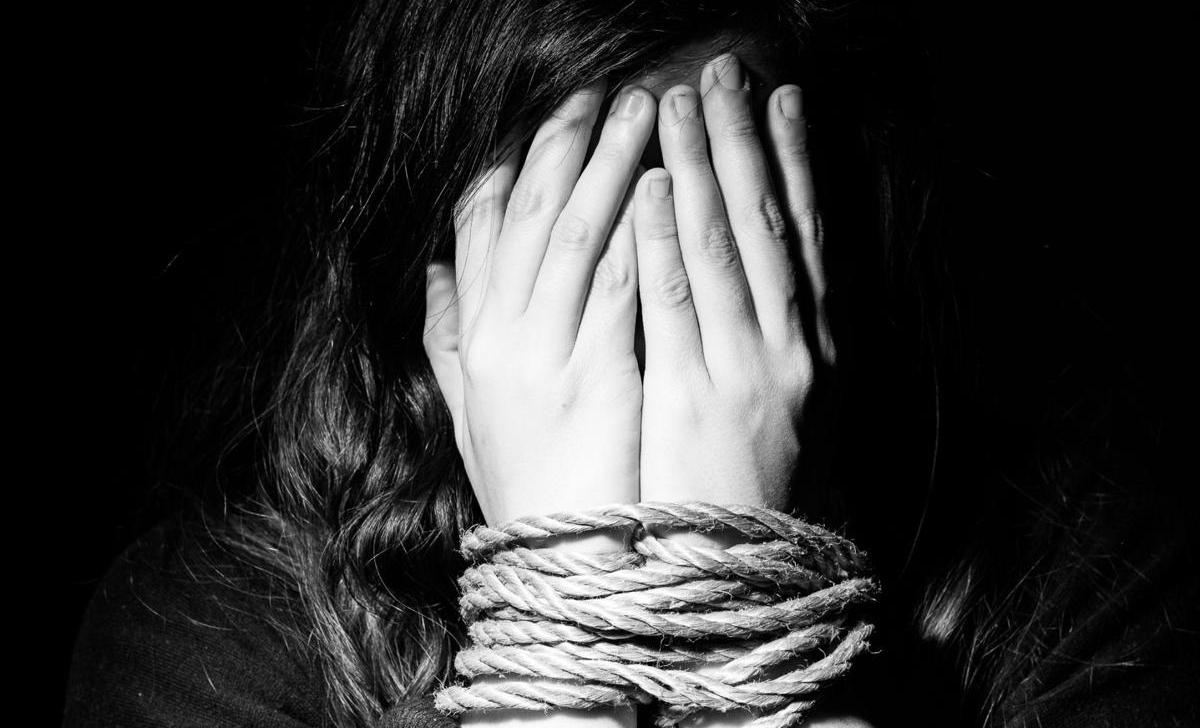 In this thought-provoking article titled "Life in the Shadow: The Reality of Human Trafficking," Soumya Saxena, a distinguished legal scholar and compassionate humanitarian, unveils a haunting reality often concealed in the shadows. With a Bachelor's degree in Law from the prestigious National Law Institute University in Bhopal and a Master's in Humanitarian Action from Ruhr University in Bochum, Germany, Soumya possesses both the academic foundation and the practical experience to address complex issues. Her current role as a Programme Officer at ActionAid Association reflects her dedication to creating positive change.
In this thought-provoking article titled "Life in the Shadow: The Reality of Human Trafficking," Soumya Saxena, a distinguished legal scholar and compassionate humanitarian, unveils a haunting reality often concealed in the shadows. With a Bachelor's degree in Law from the prestigious National Law Institute University in Bhopal and a Master's in Humanitarian Action from Ruhr University in Bochum, Germany, Soumya possesses both the academic foundation and the practical experience to address complex issues. Her current role as a Programme Officer at ActionAid Association reflects her dedication to creating positive change.
Drawing upon her extensive legal knowledge and humanitarian perspective, Soumya delves into the intricate web of challenges faced by survivors and the systemic issues that perpetuate the grave injustice of human trafficking. Through poignant narratives and stark statistics, she unravels the disturbing truth behind human trafficking, compelling us to confront this critical issue with empathy and resolute action.
Now, let us delve into Soumya's thought-provoking article as she uncovers the harsh realities of human trafficking, challenges our perceptions, and calls for urgent action to combat this grave issue.
Scroll down to read the full article:
“But they went to work there on their own”, was the banal reply we received from the police when we tried to register a First Information Report (FIR) for the trafficking of two minor girls from a remote village in Jharkhand to Bhilwara, Rajasthan. Both girls were kept at a construction site of a textile mill, where they worked without payment and were raped repeatedly by the contractor. The police were adamant to only register the case under Protection of Children from Sexual Offences (POCSO) Act against the contractor, while no case was registered against the mill owner.
Human trafficking should have no place in our society yet at the Gauravi (Sakhi) One Stop Centre in Bhopal that regularly encounter cases that violate the dignity, freedom and fundamental rights of human beings that are guaranteed under the Indian Constitution. Gauravi is a crisis centre in Madhya Pradesh (MP) operating in collaboration with the Government of Madhya Pradesh. At Gauravi, survivors of sexual and domestic violence can access a suite of services, so that they can recover from trauma and begin to rebuild their lives. These services include a helpline, a safe shelter, medical treatment, counselling and legal aid.
With 28.9% of Indian population being migrants, people travelling for employment is endemic in our country. However, without adequate protective mechanisms, there is a thin line that separates migration from trafficking. Migration induced by poverty and the lack of decent livelihoods are inextricably linked with vulnerability of young boys and girls, women and often men, and these are more than often exploited by traffickers and those who benefit from it. There are innumerable instances when initially people may go for employment opportunities without coercion, but women and girls are sexually abused or even forced into sex work.
Many girls who are at risk of being trafficked are considered to be missing. In the case of Pooja (name changed), a 13-year-old girl who was kidnapped from her home by an acquaintance in Bagsevaniya, Bhopal, it was only after much contention that the police registered the case as one of a missing person, which delayed investigation in the matter for almost a year, to the detriment of Pooja’s plight. She later managed to escape to Bhopal on her own after a year of being kept as an unpaid domestic servant with an affluent family. The local police later filed a case against the family, which was unfortunately dropped as a settlement took place between the family and Pooja’s mother.
According to the National Crime Records Bureau (NCRB) 2020, approximately 30 children go missing in MP daily, and nine never return. Most are believed to be trafficked for domestic work, sex-work and marriage. In the last three years, 14,553 children disappeared in Madhya Pradesh with 11,885 being girls. During counselling, 65% of the girls reveal that they have left their home under the lure of better jobs, yet have ended up in forced labour and sex work, facing unimaginable violence.
One of the most prevalent forms of child trafficking in MP is forced labor and bonded labor. Traffickers lure impoverished families with false promises of better opportunities. These children are forced to work in hazardous industries, leading to severe physical and emotional abuse, and depriving them of their right to education and a dignified childhood.
No contact with family, partial or non-payment of wages, and money given or taken by agents abetting migration of vulnerable persons are all emerging forms of trafficking. These emerging forms have become so common and disguised as forms of employment that they are overlooked by the police, state authorities and even the wider public.





 In this thought-provoking article titled "Life in the Shadow: The Reality of Human Trafficking," Soumya Saxena, a distinguished legal scholar and compassionate humanitarian, unveils a haunting reality often concealed in the shadows. With a Bachelor's degree in Law from the prestigious National Law Institute University in Bhopal and a Master's in Humanitarian Action from Ruhr University in Bochum, Germany, Soumya possesses both the academic foundation and the practical experience to address complex issues. Her current role as a Programme Officer at ActionAid Association reflects her dedication to creating positive change.
In this thought-provoking article titled "Life in the Shadow: The Reality of Human Trafficking," Soumya Saxena, a distinguished legal scholar and compassionate humanitarian, unveils a haunting reality often concealed in the shadows. With a Bachelor's degree in Law from the prestigious National Law Institute University in Bhopal and a Master's in Humanitarian Action from Ruhr University in Bochum, Germany, Soumya possesses both the academic foundation and the practical experience to address complex issues. Her current role as a Programme Officer at ActionAid Association reflects her dedication to creating positive change.


.jpg)










